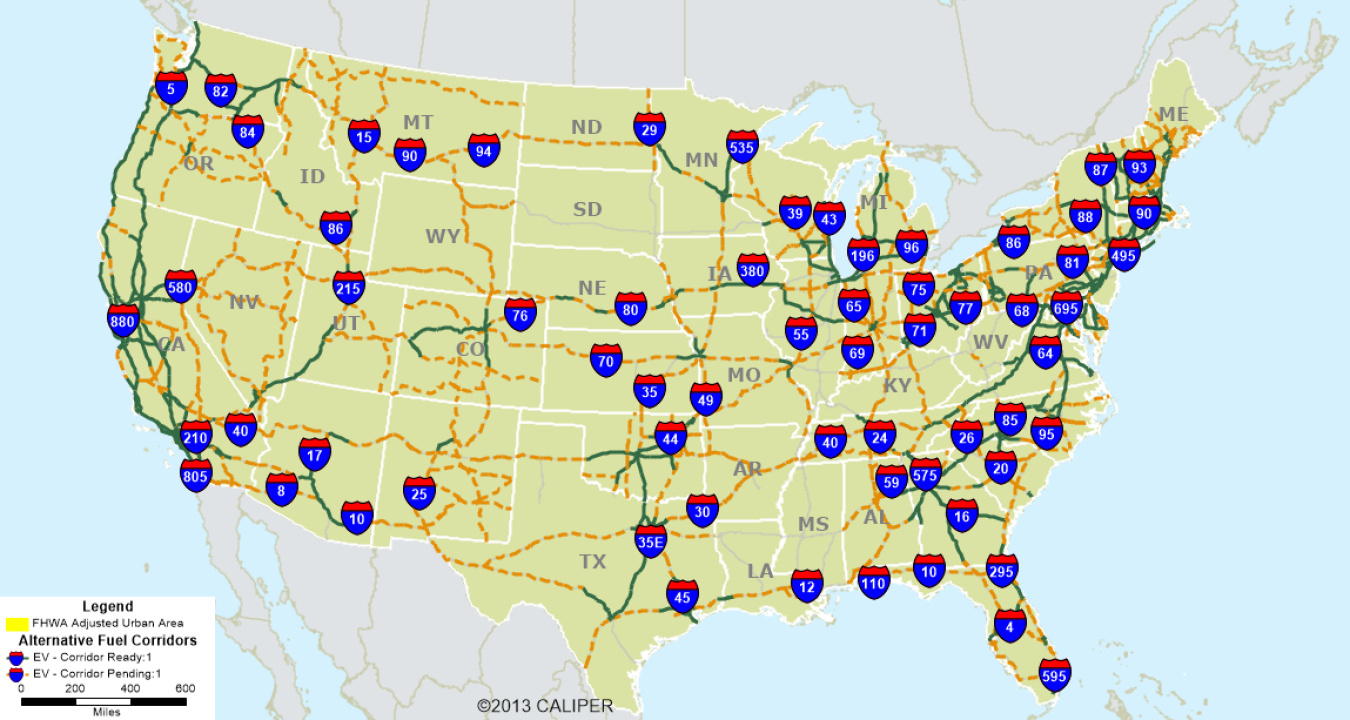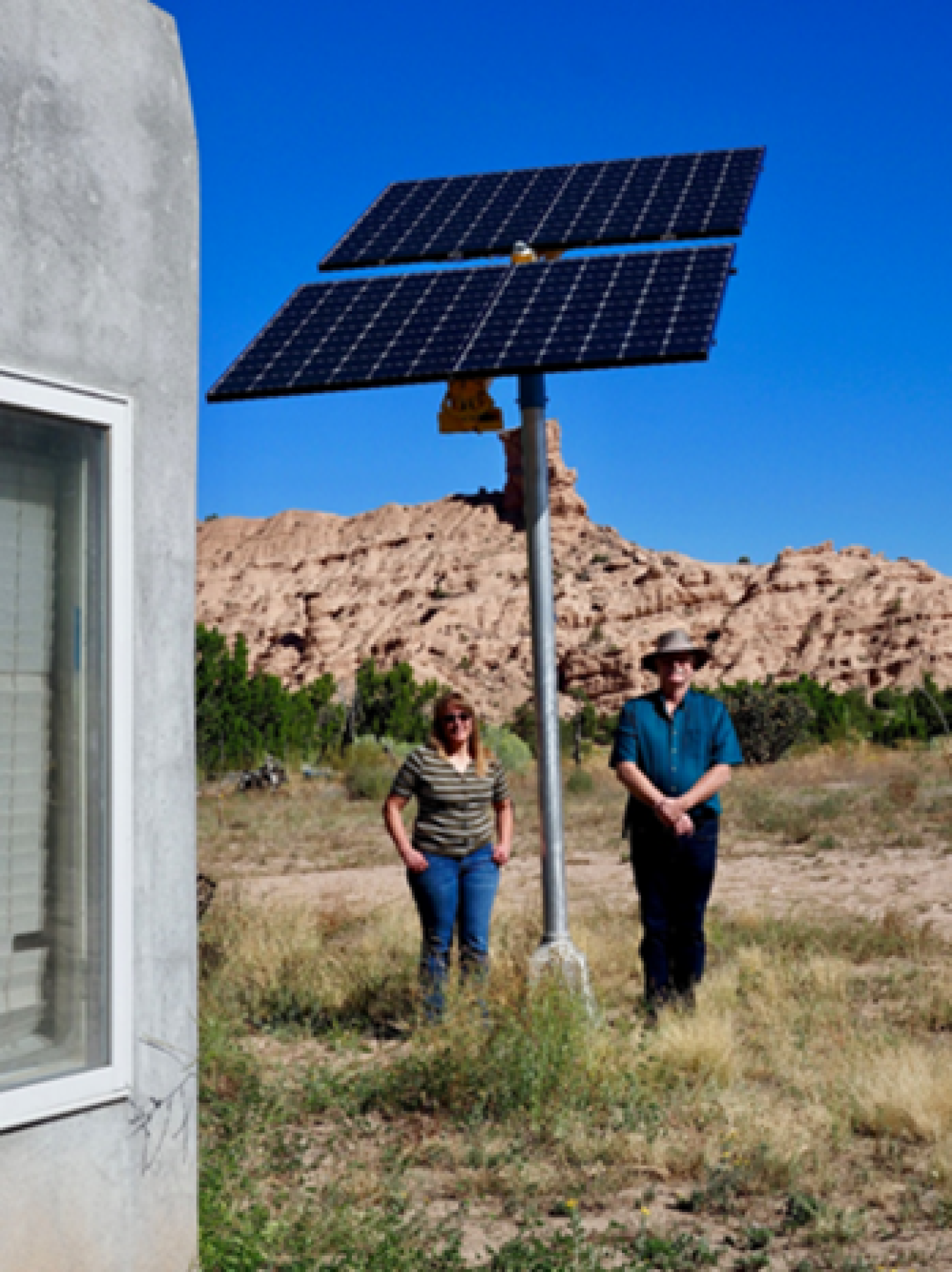New Mexico is taking significant steps to promote renewable energy throughout the state by clearing the way for electric vehicle (EV) infrastructure and investing in community solar demonstration projects.
In 2020, the New Mexico State Energy Office secured approval to designate alternative fuel corridors for EV charging pumps, which the office projects to spur substantial private investment to install over 1,200 miles of alternative fuel corridors in the short-term. Additionally, through its PV on a Pole community solar program, the office installed two prototype solar panel systems and plans to install two additional systems in spring 2021 at Northern New Mexico College in collaboration with the college's Trade Training Program.
The U.S. Department of Energy (DOE) is supporting this pathbreaking work through the Office of Energy Efficiency and Renewable Energy's (EERE) State Energy Program. These projects advance key EERE goals of decarbonizing the transportation and buildings sectors and promoting clean energy workforce development.
Electric Vehicle Charging Pumps
The New Mexico State Energy Office, with support from the New Mexico Department of Transportation and Land of Enchantment Clean Cities, recently secured approval from the Federal Highway Administration (FHA) to designate alternative fuel corridors, a critical first step for expanding electric vehicle charging infrastructure.

Previously, New Mexico was one of just four states that had not designated alternative fuel corridors. The SEP grant supported the New Mexico State Energy Office's development of the application to FHA, and the fueling corridors were designated in May 2020.
Designated stations are listed as alternative fuel locations in areas near I-25, I-10, US-70, and US-285. As a result of the corridor designations, New Mexico's State Energy Office projects private investment of over $900,000 to back the installation of over 1,200 miles of alternative fuel corridors.
The initiative to add fuel corridors within the state contributes to a national goal of creating an interstate network of alternative fuel stations, which will be critical for efforts to tackle climate change and create high-quality jobs. New Mexico has also encouraged the purchase and adoption of EVs by making fuel stations accessible for residents and visitors alike.

PV on a Pole
In addition to paving the way for EV infrastructure, New Mexico experienced recent success with its innovative community solar program, PV on a Pole.
The program—designed in 2016 through a partnership between the state and the Clean Energy States Alliance and supported in part by EERE's SEP grant—features a solar appliance that can provide 1 to 2 kilowatts of solar energy per system per household, depending upon module capacity.
The solar appliance was designed to be installed rapidly with a small land footprint. The solar appliance also works with low-amperage service entrances, or homes that are limited by how many appliances can be run at once. This is an important feature for low-to-moderate income and rural communities.
Prototype appliances were installed in two Nambe Pueblo homes in collaboration with the Jemez Mountains Electric Cooperative. The appliances offset a significant portion of each household's energy use and generate significant savings for each household from reduced energy bills. Additional demonstrations will offset even more homes' energy use with renewable energy and help drive down costs of the appliances to a competitive price.
The PV on a Pole initiative was expanded in 2020 to demonstrate additional pole mounted arrays. The state of New Mexico purchased the kits for Northern New Mexico College's Trade Training Program. The training program will allow students to install the units on college grounds, which will provide solar-generated electricity, reduce the utility bill costs for the campus, and train students in photovoltaic (PV) system manufacturing and installation. Funds from the SEP grant supported staff who provided technical assistance to the college.
This new partnership with Northern New Mexico College highlights the dual impact of the program in providing cheap, renewable energy and workforce development opportunities for New Mexico residents. The COVID-19 pandemic has hindered further demonstrations, but SEP looks forward to supporting the future success of the PV on a Pole program.
DOE's State Energy Program provides funding and technical assistance to states, territories, and the District of Columbia to enhance energy security, advance state-led energy initiatives, and maximize the benefits of decreasing energy waste. The State Energy Program emphasizes the state's role as the decision maker and administrator for program activities within the state that are tailored to their unique resources, delivery capacity, and energy goals.
